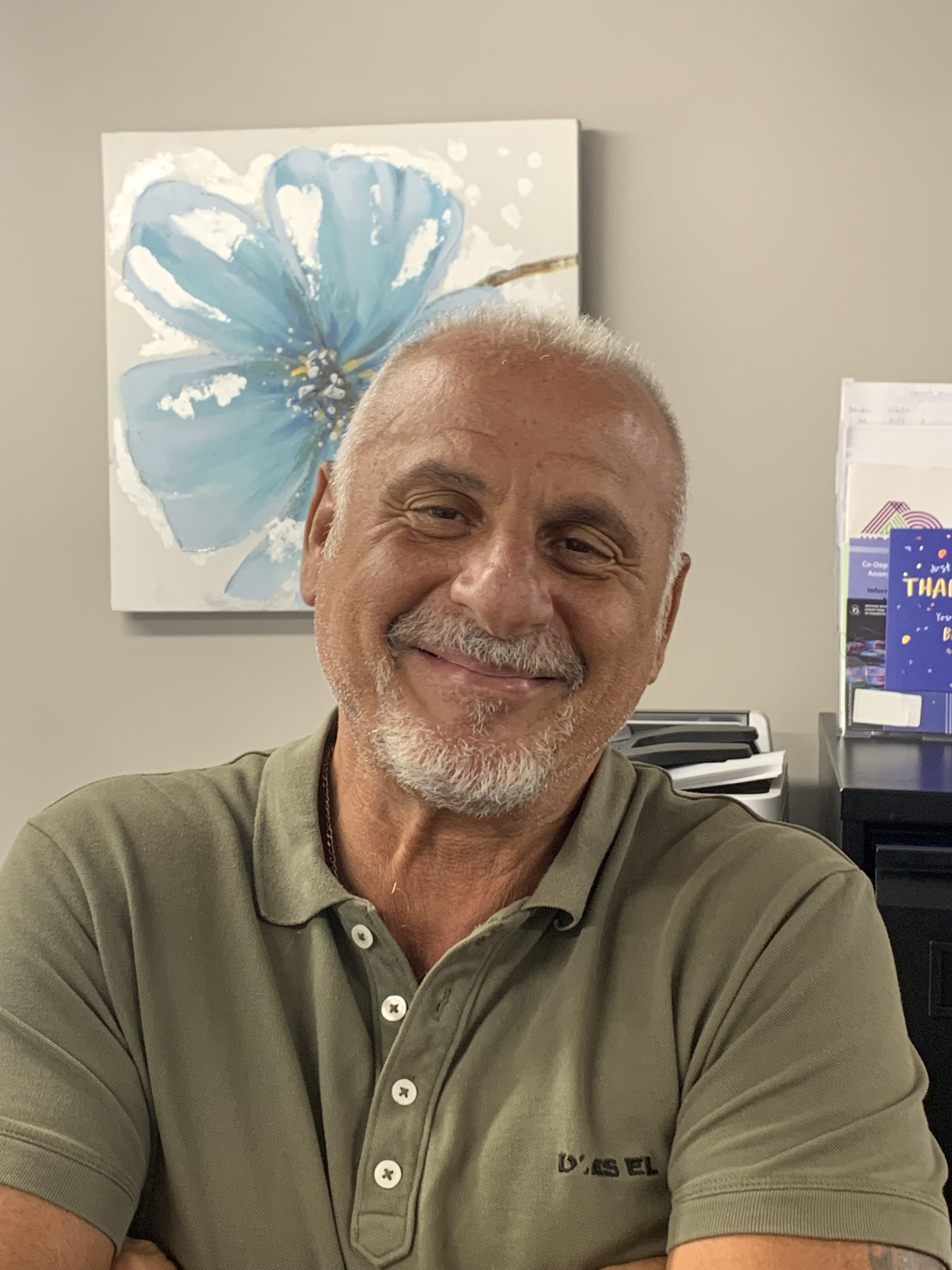Parenting is one of the most demanding and emotionally charged responsibilities in life. When combined with the journey of addiction recovery, it becomes an even more complex and delicate balancing act.
For many individuals, becoming a parent can be a powerful motivator to seek sobriety and rebuild their lives. At the same time, the stresses of parenting can be overwhelming, increasing the risk of relapse and emotional distress.
At PCP we understand the dual challenge of parenting during addiction recovery and how addiction affects the family unit. This impact often extends to extended family members, such as grandparents, aunts, uncles, or other relatives, who may also be affected by substance use disorders and play a crucial role in family dynamics and support. That is why we are dedicated to educating our readers on how to break the cycle of addiction and restore the stability that the family, and most especially children, need to thrive.
Introduction to Family Recovery

Family recovery is a vital part of the healing journey for anyone affected by substance use disorders. When a parent struggles with addiction, the entire family system—parents, children, and other family members—feels the impact. The Mental Health Services Administration highlights that addressing substance use disorders requires a family-based approach, recognizing that recovery is most successful when the whole family is involved. Family therapy plays a key role in this process, helping everyone process their experiences, rebuild trust, and develop healthier ways of relating to one another. By seeking treatment and support together, families can create a safer, more supportive environment that fosters healing and long-term recovery for all members.
The Duality of Parenting and the Entire Family System During Addiction Recovery
Substance use dependence and addiction recovery can be a tumultuous period, even without adding the unique challenges of parenthood. Children can be a source of motivation towards change and sticking with your recovery process. On the other hand, children can also be a significant source of stress during recovery, which could also be a potential risk for relapse.
Tackling the specific challenges facing parents during recovery is an important part of family-inclusive recovery programmes and is key to creating strategies that promote long-lasting sobriety and rebuild broken homes. In addition to these, parents in recovery often face other challenges such as barriers to employment, housing, transportation, childcare, and stigma, which require additional support and resources to overcome.
Understanding Parental Substance Use
Parental substance use can deeply affect the entire family system, often leading to increased risk of substance use disorders, mental health problems, and physical health problems for both parents and children. According to the Diagnostic and Statistical Manual of Mental Disorders, substance use disorders are complex conditions that require careful assessment and treatment. Recognising the signs of drug addiction, substance misuse, and substance abuse—such as changes in behaviour, mood swings, or neglect of responsibilities—is crucial for early intervention. Understanding the impact of parental substance use helps families acknowledge the challenges they face and motivates them to seek treatment. Applying family systems theory, it becomes clear that addiction is not just an individual issue but one that disrupts the balance and well-being of the entire family. By taking steps to address substance use and its effects, families can begin to heal and reduce the risk of ongoing mental disorders and other health problems.
How Parental Substance Misuse Affects Children

Obtaining exact figures on the number of children living in homes with a parent struggling with substance use is difficult, but estimates range from 700,000 to 1.3 million children. Figures from the government-sponsored recovery programmes showed that 43% of people surveyed in addiction recovery were parents. With the number of people seeking help for substance abuse rising steadily, this may suggest that the UK has a growing problem with addiction among households with children, including those with addicted parents and alcoholic parents.
This poses a serious moral and societal challenge because children living in households where one or both parents struggle with addiction, substance use disorder, or mental illness are exposed to:
Adverse childhood experiences, including neglect, which could manifest as lapses in feeding, healthcare, clothing, and hygiene.
A greater risk of childhood accidents due to lack of parental attention and neglect.
They are more likely to be physically, emotionally, and sexually abused, especially in families where a parent’s substance use or drug problems are present.
Increased likelihood of developing anxiety disorders, post traumatic stress disorder, and other psychological problems as a result of trauma and family environment disruptions.
Such children may underperform in school due to erratic attendance patterns, truancy, and lack of parental support.
Children living in households with parents struggling with addiction, substance use problems, or mental illness are more likely to end up in foster care, highlighting the importance of child welfare interventions.
They are more likely to struggle with mental health challenges like depression, anxiety, and chronic health problems, as well as show signs of problematic behaviour like aggression towards peers.
Children may assume adult responsibilities, taking care of siblings or even the addicted parent.
They may also display signs of delayed emotional development, attachment issues, and cognitive delay, often linked to the effects of a parent’s substance use and mental illness.
Children brought up in households where drug use is prevalent are more likely to engage in drug use.
The long-term impact can persist into adulthood, with adult children of addicted or alcoholic parents facing ongoing psychological, relational, and health challenge
Family Systems and Recovery
Family systems theory teaches us that every member of a family is interconnected, and when one person is affected by substance use disorders, the entire family system feels the strain. Addiction is often called a family disease because it impacts not just the individual, but also other family members—spouses, children, and even extended relatives. Family therapy is a cornerstone of recovery, providing a safe space for everyone to express their feelings, address past hurts, and learn new ways to support each other. Through therapy, families can identify and change enabling behaviors, address codependency, and develop healthier communication and boundaries. By working together and seeking help from mental health professionals, families can build a strong support network that promotes healing and recovery for the entire family, leading to a more stable and loving home environment.
Barriers Facing Parents in Recovery
Stigmatisation. Fear of stigmatisation is a common challenge on the journey of recovery. However, parents in addiction recovery face even higher levels of judgement from society and even their own family. This stems from the impression that parents who abuse drugs are not fit to raise children and is a significant barrier to seeking help, especially for single parents and women.
Lack of Support. Poor financial, child care, and social support are challenges faced by many parents during addiction recovery. Parents often find themselves swallowed by numerous personal and family responsibilities, making it difficult to dedicate enough time to their recovery. Human services and social workers play a crucial role in supporting these families by providing assessment, therapy, family support, advocacy, and referrals to treatment or court systems. In some cases, children’s services may become involved to ensure the welfare and safety of children in families affected by addiction.
Rebuilding Trust. Addiction is a tumultuous situation that often leads to neglect of personal, spousal, and parental duties. Rebuilding these connections and regaining the trust of those you love often requires time, patience, and compassion.
Legal and Custody Battles. Unfortunately, custody battles, divorce, and even legal problems—such as encounters with the criminal justice system or legal disputes related to substance use—are common issues faced by many parents in recovery. These are significant stressors and can be distractions from focusing on recovery, hindering the recovery journey and increasing the risk of relapse.
Parenting Skills in Recovery
Parenting while in recovery from substance use disorders requires a special set of skills and a commitment to ongoing growth. Parents struggling with substance use must learn to manage stress, set healthy boundaries, and practice self care—all while meeting the needs of their children. Developing effective parenting skills, such as clear communication, consistent discipline, and emotional regulation, is essential for creating a safe and nurturing environment. Support from mental health professionals, peer support groups, and community resources can help parents build these skills and address challenges as they arise. Early intervention and attention to environmental factors, such as home stability and routines, can make a significant difference in a child’s well-being. By prioritising their own recovery and learning to set healthy boundaries, parents can break the cycle of addiction and support their children’s physical and emotional health.
Healing the Parent-Child Relationship
Rebuilding the parent-child relationship is a crucial step in family recovery. Addiction can leave deep emotional wounds, including feelings of guilt, shame, and anxiety for both parents and children. Healing begins with seeking treatment and support, such as family therapy, individual therapy, and group therapy, to address these complex emotions and rebuild trust. Open, honest communication and a willingness to listen are key to restoring the parent child bond. Involving mental health professionals and support networks can provide guidance and encouragement throughout this process. The ultimate goal is to create a safe, supportive, and loving environment where all family members can thrive, paving the way for lasting recovery and stronger relationships.
The Importance of Family Therapy and Family-Tailored Recovery Programmes

Dealing with addiction as a parent isn’t just a personal struggle. It has far-reaching effects on your children, spouse, and friends, as previously mentioned. That’s why recovery from addiction is rarely a solitary journey, especially for parents.
Family-tailored recovery programs recognize this by combining both the needs of the individual in recovery and their family, therefore involving a broader network of relationships in the therapy goals. These programmes are important because sober parenting involves more than maintaining sobriety. It also demands specific coping tools, family support structures, and solidly built parenting skills. For families facing complex issues such as entrenched behavioural patterns or substance abuse recovery, intensive support and residential treatment options are available to provide structured care. Substance use treatment is a key component of these recovery options, ensuring that both the parent and family receive the help they need.
Rebuilding Broken Relationships. Family-inclusive recovery models typically incorporate family therapy, parenting classes, and support groups that allow loved ones to heal together. These settings help rebuild trust, teach conflict resolution, and foster an environment of forgiveness. Trusting relationships are essential in the recovery process, helping children and partners feel safe enough to speak out about problems and build resilience. Children and partners often carry emotional scars from the period of active addiction; a safe therapeutic environment is important for expressing those feelings and establishing healthy patterns of interaction.
Providing Access to Peer Support Programmes. Peer-led spaces such as Al-Anon or family-oriented counseling can help loved ones understand addiction as a disease, rather than a moral failure. They also offer solidarity and practical advice from those who’ve faced similar challenges.
Providing Legal and Financial Support. Family-focused recovery programs often work with social services to help navigate custody disputes, court-mandated obligations, post-recovery employment, or housing instability. This kind of structural support is critical, especially for single parents or those attempting to regain custody of their children. Aging family members can also play a supportive role in the recovery process, offering guidance and stability.
Build a Structured Routine. One of the most important features of these programs is helping families build structured routines. A stable, predictable environment is vital for both the recovering parent and their children. Routine around meals, school, work, therapy, and quality time can provide the kind of safety that addiction often disrupts. School counselors are also key in identifying and supporting children affected by parental addiction, ensuring early intervention and connection to appropriate services.
Finding Effective Communication Strategies. Communication is another cornerstone of recovery. Family-centred programmes help families find healthier ways to talk through conflict, manage expectations, and express emotions without blame or avoidance.
Building an Emergency Relapse Prevention Plan. Relapse is an ever-present danger during recovery, especially for parents who deal with a unique host of challenges and stressors. Having an emergency relapse prevention strategy in place ensures that families can act quickly and compassionately if setbacks occur. The plan should include:
How to recognize potential triggers and the warning signs of relapse, and respond appropriately to crises or warning signs as they arise.
How to build clear, non-judgmental, and honest dialogue both before and after relapses.
Building a system of accountability and regular check-ins while still maintaining healthy boundaries and promoting independence.
Creating an emergency contact list of sponsors, therapists, other family members, treatment centres, and emergency services.
Clearly defining the roles of each family member if relapse seems imminent or has occurred.
Check and revise the strategy as the family’s needs and recovery status change. If relapse occurs, review what went wrong and revise the plan together. Managing withdrawal symptoms is crucial during detoxification, especially for parents who drink alcohol or use drugs, as these symptoms can pose significant risks to both the individual and their family.
Seek Help Today
Addiction recovery is not a one-person journey—especially when children and family are involved. Parenting during recovery comes with a unique set of emotional, legal, and practical challenges that can feel insurmountable without the right support.
You don’t have to face recovery – or parenting – alone. With the right support system, it’s possible to heal, grow, and rebuild a safe, loving home. If you or someone you love is struggling with addiction, PCP is here to help. Contact us today to take the first step toward lasting change – for yourself and your family.
Author
-
Andy's journey in psychology and substance recovery is marked by significant educational and professional achievements. He studied Person Centered Counseling, gained insights from psychological literature, and completed an online course on the mind. His hands-on experience includes volunteering at a Drug and Alcohol Clinic and earning a diploma in child adverse experiences. Andy holds a first-class honors degree in Psychology with Substance Use and Misuse. Professionally, he has contributed as a Lived Experience Coordinator and counselor, offering hope and empowerment to those in recovery.
Qualifications and Experience:
Introductory Course in Person Centered Counseling
View all posts
Extensive study of psychological literature (including Carl Rogers and Freud)
Online course completion on the Mind from UCT
OCN peer mentoring course
Level 3 diploma in child adverse experiences
First-class honors degree in Psychology with Substance Use and Misuse
Experienced Lived Experience Coordinator for Probation Dependency and Recovery service








